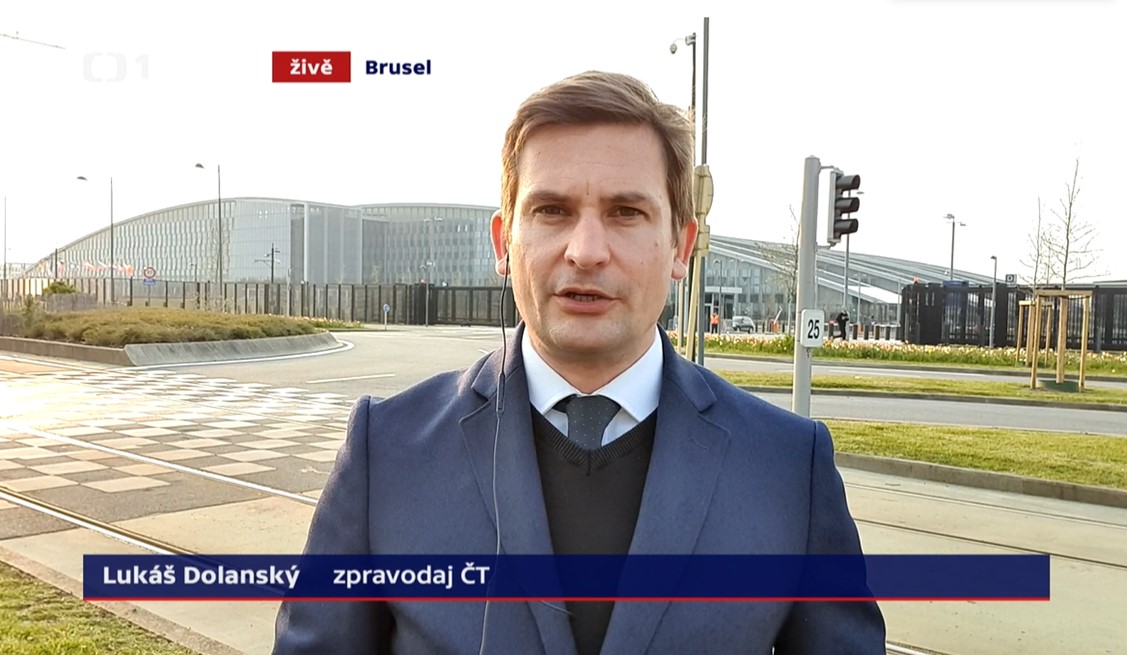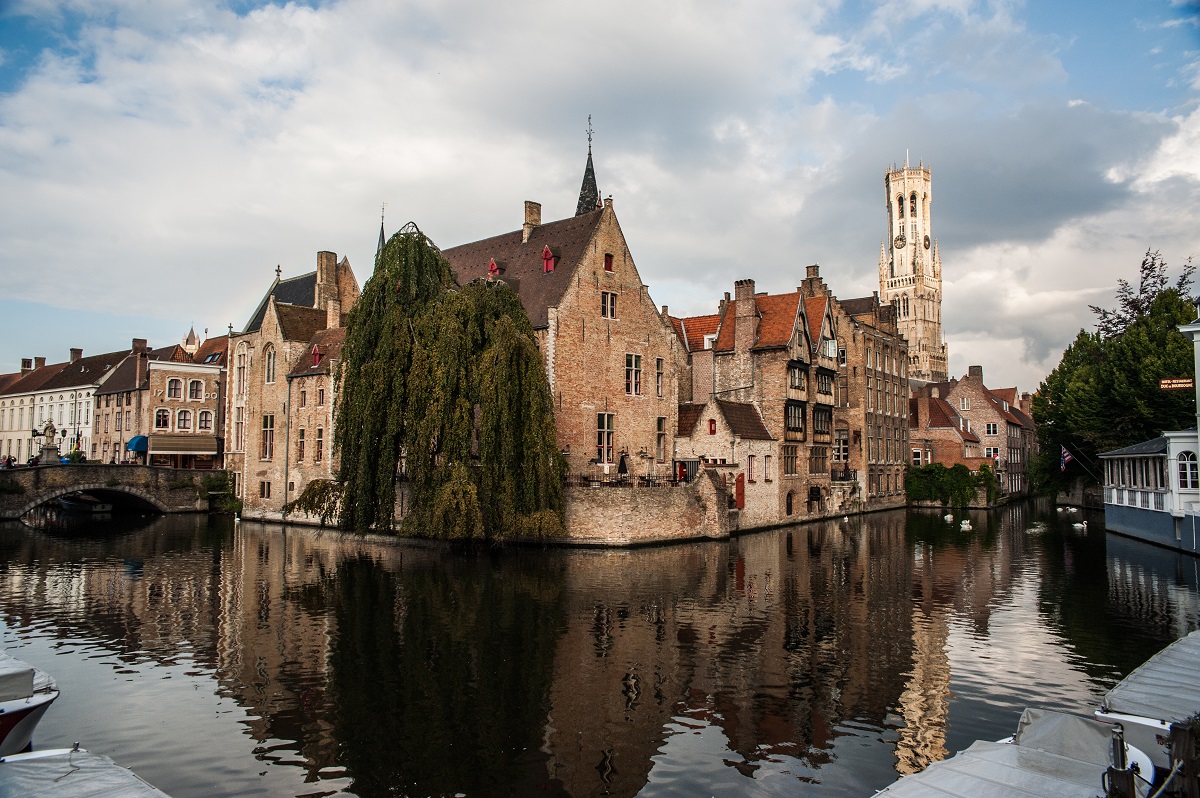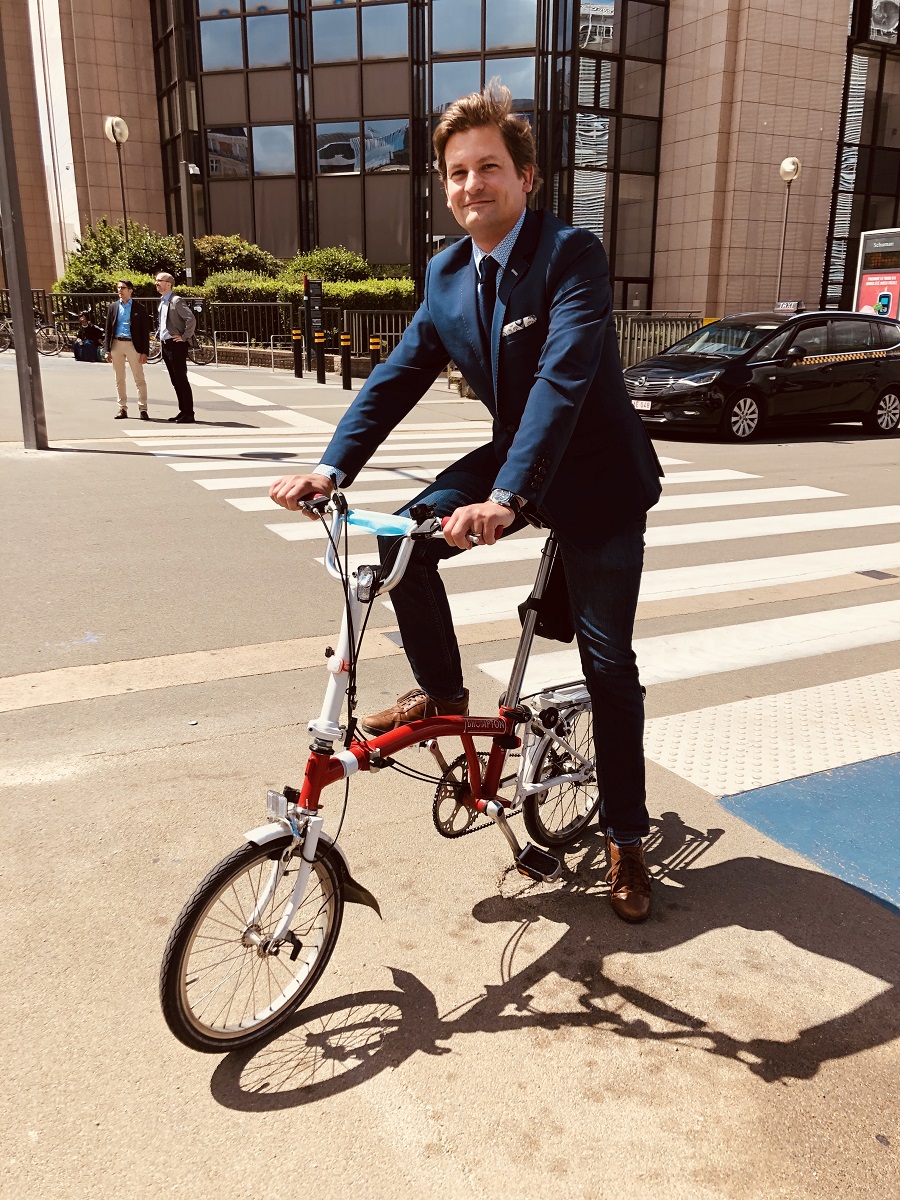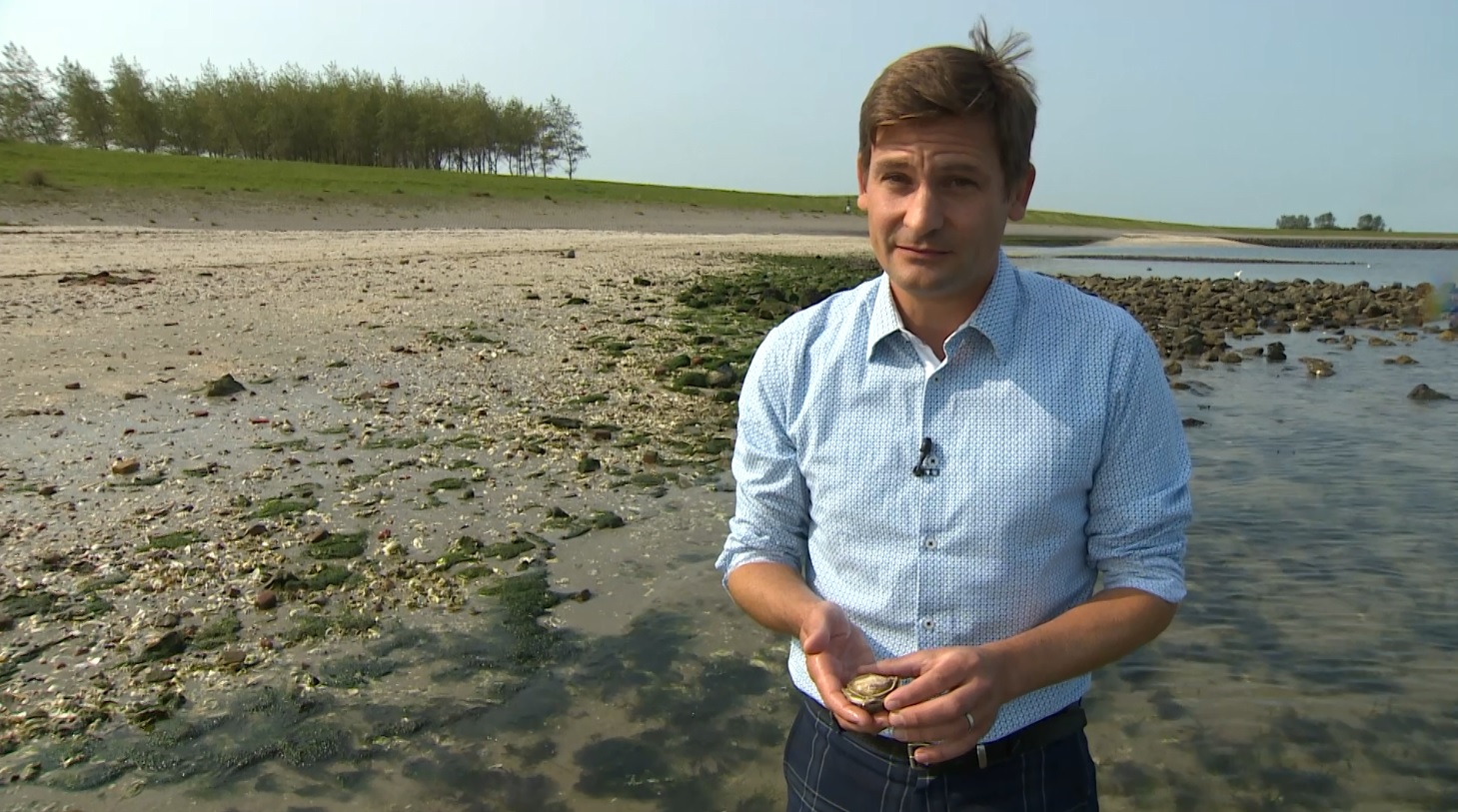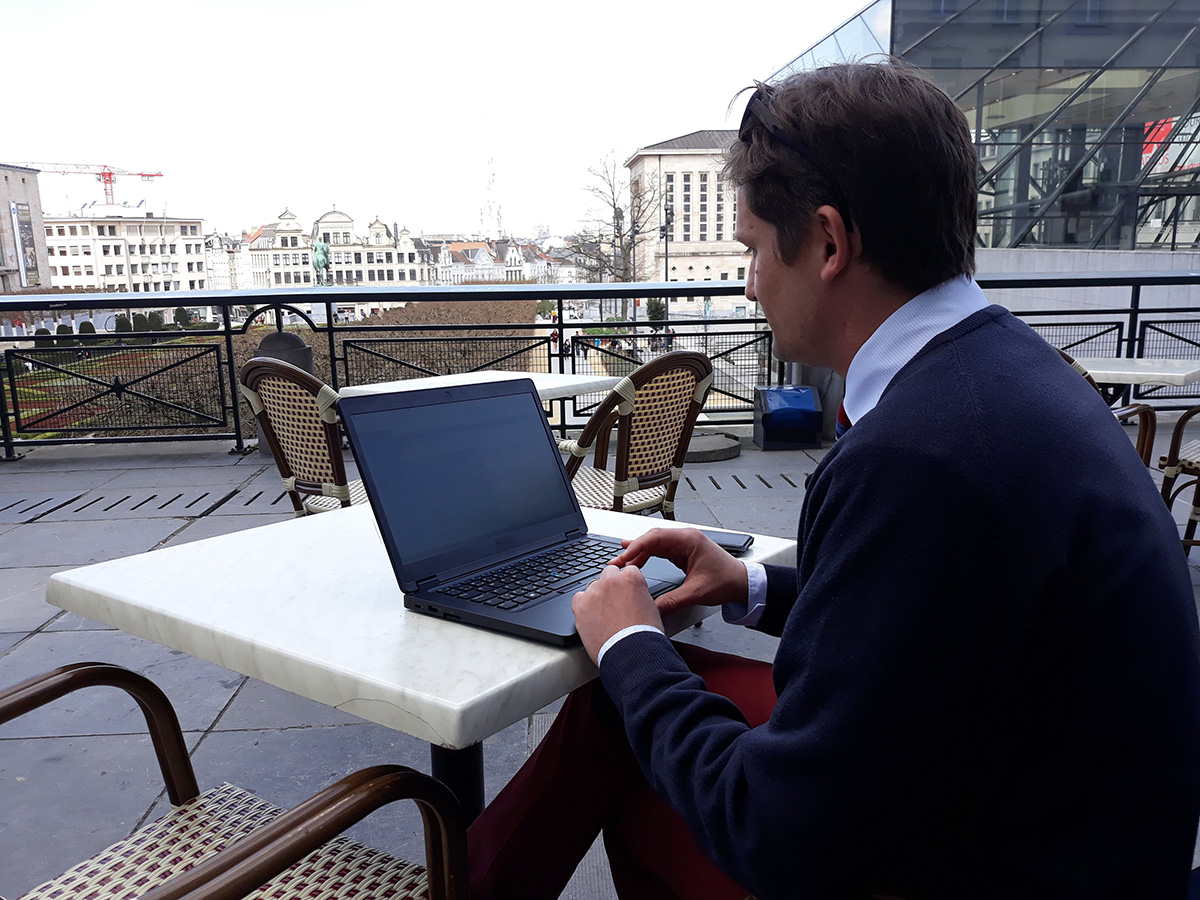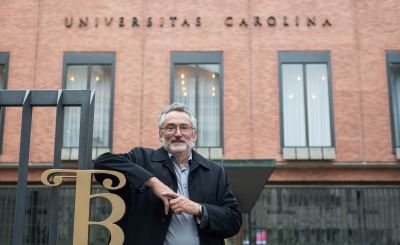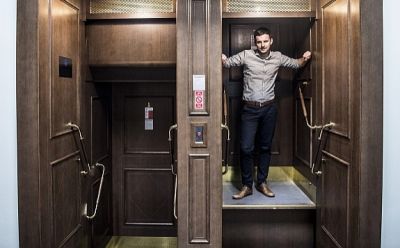For viewers of public broadcaster Czech TV, he is both a trusted reporter and a familiar face: Charles University graduate Lukáš Dolanský. The reporter began in domestic affairs 11 years ago but has focused on foreign affairs for the last four or so, reporting as Czech TV’s man in Belgium.
Recently, Dolanský, who studied at the Faculty of Social Sciences and also at the University of Westminster, London, was a guest speaker at Charles University’s Day for Lifelong Learning, along with other alumni and Czech expats living and working abroad. In our interview, the seasoned reported admitted his biggest weakness was impatience, an issue that was easily resolvedwhen he became a professional journalist.
“Working in daily news means you only have a few hours to do your report before it is filed and broadcast. The next day, you start with a clean slate. That means I don’t have to dwell for several days on one subject, mulling over all the different ways I could do the report. As for his strong suit? “Creativity,” he says, “at least, I hope.”
Lukáš, let’s start with this: drinking beer in Belgium is a given but what about their cuisine? Do you have a preference for Moules-frites or Chicons au gratin? Do you enjoy Belgian cuisine?
And how! If there is one item I’ll never forget about Belgium it will be their food. Belgians like eating and eat quite a bit, they’re similar to us that way. But the variety on offer is something else: fresh fish, mussels, shrimps. Or you can drive to Molenbeek and buy all kinds of spices in the local shops and the best dates you ever tasted. They also have great stands with Asian cuisines. I’m going to miss it, one day.
The beer too. Before being assigned there, nothing compared to Pilsner Urquell. But they have all kinds of excellent local beers which you drink in smaller glasses and not half-litre mugs like in the Czech Republic. Before, I used to take a few bottles of Pilsner with me to Belgium; now, when I return home, it’s the opposite: a bring a few bottles of Belgian beer with me!
What about famous cities? Bruges or… Gent? What are your favourite sites?
I was lucky in unhappy times. Belgium was hard hit by the pandemic and suffered a very strict lockdown. The borders were closed so I was stuck there but it gave us the opportunity to travel around the country and see areas I wouldn’t have otherwise. I remember Bruges the most. We were doing a report when it went into lockdown and people were restricted to and not allowed to leave individual districts. The streets of Bruges were empty and quiet and we had the place to ourselves.
I think we met maybe five people over several hours of shooting. One of them was a small stout man who I recognised as the former mayor. He gave us an interview and he told us the absurdity of how the city, just a few weeks before had been considering options to limit tourist influx by introducing turnstiles or by banning large international ships in port. Now, he said, what they would have done for a single busload.
Did you fall for another Belgian obsession, that is, cycling? Commuting by bike?
Absolutely. 100 percent. Again, the coronavirus played a role. Before the pandemic I had bought a new boke which I had locked but was nevertheless stolen right in front of the European Commission headquarters in Brussels! Can you imagine?! So I bought a 15 year-old folding bike I saw in an ad. When the pandemic hit, I didn’t really want to use public transport. I began riding the bike and I haven’t stopped.
Brussels is a great city for cyclists, it’s very bike-friendly and they added another 40 km worth of routes during the pandemic. I got used to riding even in the winter and rain – like everyone there – and I rode a total of 2,700 km in the year just around the city.
On TV, when you present stories, you are always not only perfectly prepared but dressed really well. Do you get advice from your wife on what to wear?
Thank you for the compliment. TV is a visual medium. We have manuals on how to dress and what not to wear. For instance, you can’t have a hat, not even in freezing temperatures or wind. My take is that if I am “forcing” my way into someone’s living room, I should look the part and not embarrass myself. A couple times friends noticed when my tie was askew. They noticed that but when I asked if they remembered what I had been talking about, they laughed and admitted they couldn’t.
In an interview for CU’s Day for Lifelong Learning, you said that you liked challenges and learning new things. Is there anything you want to learn but haven’t found the time for yet?
Learning new things is what drives me the most. For some, money is important, or their career, which is fine. For me, though, I was always interested in new things: how to write a newspaper story, to do a live broadcast from the studio, to learn how politics are done in the back corridors. I always wanted to learn how to play the drums so I guess we’ll see…
What, for you, makes a perfect report?
If it’s entertaining. Because if I find it interesting the hope is that viewers will too. The director Miloš Forman used to say “Important things should be [presented in an entertaining way].”; I try and present even dry topics, such as a session of European Parliament, in a way that is interesting, in an interesting wrapper or package. I like reports where I learned something I knew little about before and took viewers along with me: behind the scenes in a Belgian chocolate factory or a Dutch oyster farm. There’s the food, [again] (grins).
You’ve been a journalist for quite a while; did you ever want to be anything else?
I’ve been a journalist 25 years. When I was studying journalism and media studies I was already working for a regional paper. Then I worked for a couple national newspapers and then the last 10 years or so in TV. When I was in grade 2, still under communism, I answered I wanted to be a diplomat in London and got a frown as well as a black mark from our comrade teacher. I considered studying political science, but tell me, being a political and EU correspondent, in a way, isn’t that better?
How much of an impact did the pandemic have on your profession?
It was big and not just for me but all TV reporters, first from a technical point of view. We began broadcasting from home, even on mobile phones if necessary. The message became more important than technical perfection. The content was affected as well: in Brussels visiting all institutions was banned. Politicians and other officials began working from home so online interviews came to the fore. Even with the Secretary General of NATO Jens Stoltenberg with whom I skyped, or with prime ministers and presidents taking part in videoconference summits. It was hard to put together reports where anything was happening.
How important has working abroad been for you?
I am lucky to have been able to have lived and worked in Czechia, the United States, Great Britain, Germany and Belgium. Belgium was even better because the whole family was able to join me. It’s important for me that my children were also able to experience a different setting and culture. And also for them, like me, to face challenges, where they don’t understand and have to learn a new language.
One of the things we learned about you at the Charles University event is that you don't like trempink (tramping) which is the Czech pastime of camping under the stars... Does that date back to your time at university?
I went canoeing once with fellow classmates and to this day I don't get the attraction... We were speaking about similarities between Czechs and Belgians. They also like canoeing, especaily in Wallonia where families rent boats and spend weekends on the water.
| Lukáš Dolanský |
| Lukáš Dolanský was born in Prague, went to Methacton High School in Pennsylvania and completed his Masters the Faculty of Social Sciences at Charles University. He did additional studies at the University of Westminster in London. He has been working in media for some 25 years. Many viewers in the Czech Republic will know him best for his work for public broadcaster Czech TV, especially from the evening news. He is Czech TV’s foreign correspondent based in Brussels. |


